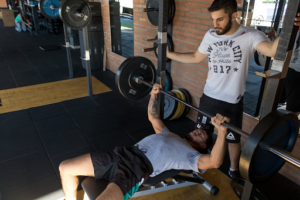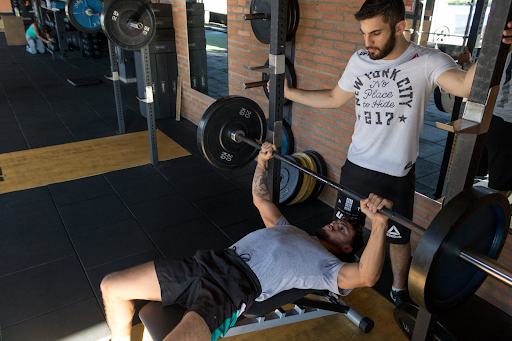
Fitness has become the lifestyle of many in Canada and worldwide. As a result, more people will troop towards creating a consistent fitness regimen. With this rise comes the option of a personal trainer at home or a gym.
Both methods attract some cost and, naturally, comfort and money-saving fall along the decision-making scale. Knowing the cost implications of each choice is essential if you choose to work with a personal trainer at home or a register at a gym.
At a glance, here is a handy breakdown of personal training prices across some cities in Canada.
| Cities | Average cost per session at Home | Average cost at Gym |
| Halton Region | $70 -$100 | $60-$80 |
| Downtown Toronto | $90 -$120 | $40-$90 |
| York Region | $65 -$90 | $60-$135 |
| Brampton | $40-$70 | $84 -$370 |
| Durham Region | $65-$90 | $150 for a month |
Again, remember that some factors determine these costs, so you should read the entire article to gain knowledge of these considerations and make an informed choice.
Factors that determine the cost of personal training
- Online or home personal training
Will the personal trainer visit your home regularly, or will the training be online? This is one of the first things to be clear on. For online training, the cost will be minimal, but it could cost more if the instructor is training you at home.
- Personal training experience.
How skilled is the instructor? You may have to pay more for an experienced instructor as they don’t come cheap. The more expertise they have, the higher their cost.
- Location
Your location also determines the cost of personal training. If you live in cities like Toronto, you might find a trainer at $79 per hour and $90 per hour in Vancouver. So, commuting to those places affects the overall cost of personal training at home instead of the gym.
- The duration of each session.
With sessions spanning 30 to 90 minutes, the length of each session takes a toll on the cost. You can have discounted fees when you pay for many sessions upfront.
- Equipment availability.
What is the standard of the equipment available in the gym or the ones you have at home? For gyms with high-end equipment,memberships can cost as much as $80 per month for exclusive access and $40 for basic. Depending on the results you want, registering with a gym that has high-end equipment might be a good idea (not always, though! Equipment is always just one factor).
- Gym trainer
Even though this option attracts more money, hiring a personal trainer from the gym may work best if you have unique goals. Look out for gym trainers that have the required certification and hire them. If you have the personal training service at home, the cost could go up to $60 – $70 per hour, depending on the area. It also goes from $200 to $300 per week, with $120 for à-la-carte single personal training sessions.
Pros of home personal training
- Consistency: You have no room for excuses whenever the trainer knocks at your door. This also keeps you consistent.
- Comfort and privacy: You can work out in the privacy of your home without having to wait for your turn on the equipment.
- No commuting stress: The thought of commuting to the gym center can induce excuses, but this time, the trainer brings the “fitness” home.
Cons
- They might hurry to conclude with you and run on to the next client.
- You may not have as comprehensive an experience as you might at the gym
- You lose a sense of camaraderie with your peers at the gym (especially if you could do the same fitness routine in a class setting)
Pros of personal gym training
- Less distraction: At home, your myriad of unfinished tasks might cause you to conclude a session hastily or, at most, interrupt your attention. Whereas, when you visit the gym, your trainer keeps you focused.
- You have a variety of equipment: The luxury of several kinds of equipment is an excellent reason to visit the gym.
- Gyms are usually spacious for a variety of workout sessions
- Sense of camaraderie with your peers when you register and attend class-based fitness sessions
Cons
- The trainer’s expertise might be an issue: You may need more information about a trainer’s capabilities, even with licenses
- Flexibility may be difficult: When you hire a trainer, they must complete their task and get to the next client
Explore Online Membership
When the time and cost for gym attendance are a constraint, you can explore online membership and get into shape at your own pace. Some online memberships range from free to $350 one-time payment with self-paced video tutorials you can watch anytime. However, the online program you subscribe to must contain daily coaching with simple step-by-step instructions. A nutritional plan should also be part of the package to complement the fitness routine.
Pros of online gyms
- There are flexible options for “on-the-go gyms”. Whether you are holidaying somewhere in Canada or away from your residence, you can still maintain a fit lifestyle.
- You have your privacy and work out at your pace.
- You have no one judging your efforts.
Cons
- Technical issues always show up when not invited, and with a crabby network, your workout session is threatened.
- The many exercises might be overwhelming, and giving up appears attractive.
- Your accountability and consistency might be compromised because you need an instructor to supervise.
- If you lack motivation and discipline, consistency fails.
Where can personal trainers be found?
Registering with a gym makes it easy to find an experienced trainer. Because some gyms have free personal training packages, a good start will be to belong to a gym. You can get an experienced personal trainer on Konga. These experts are knowledgeable in holistic methods to help you achieve your fitness goals.
How to choose a personal trainer
- Credentials: Look at their certifications to see if they have the National Academy of Sports Council(NASM), Canadian Society for Exercise Physiology (CSEP), and ACE. These councils are reputable and offer rigorous programs that ensure the trainers graduate with great expertise. So, if you find a trainer with these certifications, you can trust their knowledge.
- Familiarity with injuries: Is the personal trainer familiar with injury management? Interview the trainer and inform them about your previous injuries, if any.
In the end, a personal trainer is one step to ensuring discipline as you embark on your fitness goal; both the gym and home options are beneficial. But your location, duration of sessions, and other factors should guide your preference.

